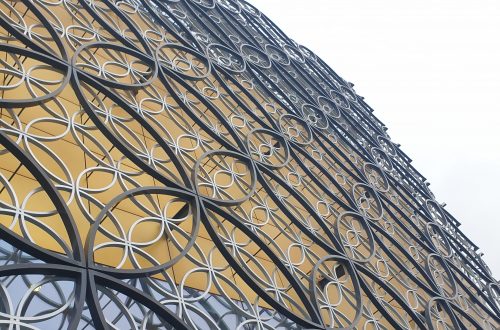
‘A Watching Brief’ – Women’s role after the Representation of the People Act
Archives give us opportunities to get really close to the thoughts and ideas of people who lived before us. Project Researcher Nikki Thorpe has been exploring the work of the Birmingham Women’s Suffrage Society, to learn how women in Birmingham were preparing for the day when they would first be able to vote.
In June 1916, as the First World War intensified across the world, members of Birmingham Women’s Suffrage Society (BWSS), began to reflect on their role after the end of the war. Following the Annual Meeting of 29th June 1916, minuted in BWSS Minute books (LF76.12) Miss I. O. Ford spoke about “The Economic Position of Women After the War”. The detail of the talk is sadly not reproduced but the minutes up to this point give a clear indication of the organisation’s continued advocacy for women’s economic position during the war and their commitment to defining the role women needed to play after it was over.
In 1914, the BWSS had decided to “abandon temporarily all political work and place the organisation at service of authorities” to support the war effort. BWSS members had supported the government ably in practical help with the war effort, from organising relief parcels to soldiers, to finding alternative employment for women who had lost jobs as a result of industries ceasing at the start of the war, to establishing female security patrols who would later become the first WPCs. They had been organising and networking efficiently for the previous seventy and more years in their aim of a Parliamentary Vote for Women on the same terms as it may be granted for men. Their support of the government with the war effort had not in any way diminished their conviction of equal suffrage, in fact, as the end of the War came into view, the imperative for this was even stronger.
In 1917, BWSS began a campaign on the “importance of the vote to women in industrial reconstruction”, an awareness that enfranchisement of women was a matter of urgency. 697 organisations, from Trade Unionists to teachers, medical professionals to Church ministers, signed a petition to MPs to demand that women were a part of post war reconstruction “which must directly affect the interests of women and children”.
Campaigning actively since the 1860s, BWSS was not a stranger to the long view with regard to women’s suffrage, nor to how each small gain must be built upon, strengthened and safeguarded. After the first wave of women got the vote in 1918, those over 30, a compromise that bitterly disappointed members of BWSS, the society amended its aims to look to the future for women’s suffrage and what it meant in reality for women to be part of the electoral process.
“A watching brief for the rights and welfare of women and children..” is a phrase that stands out in the BWSS minutes after the 1918 Representation of the People Act is passed. The main object of the organisation for full equal suffrage remains unchanged but this addition of a watching brief to ensure that there is “justice… in the period of reconstruction after the war” shows how little trust there is in the electoral process as a means of ensuring the rights and welfare of women and children.

[LF76.12] Birmingham Archives & Heritage
In 1918 Birmingham Women’s Suffrage Society became the Society for Equal Suffrage. At this historic point in time, with women over 30 now able to vote, the Society was acutely aware of the importance of maintaining their presence and pressure on the establishment so that what was so hard fought and partially won could not be eroded away.
In the coming weeks of our Represent Project we will begin to establish through our research if this ‘watching brief for rights and welfare’ was necessary, how it was achieved and how effective people were on building on the the first voting rights.




